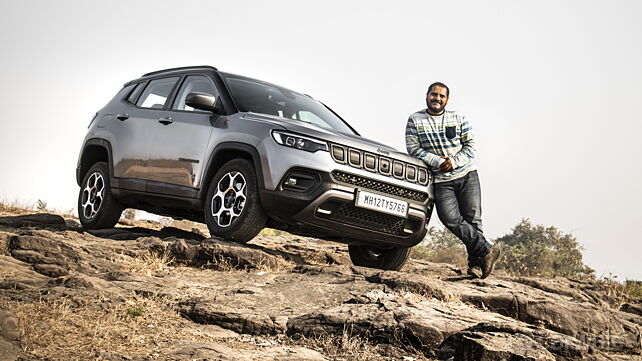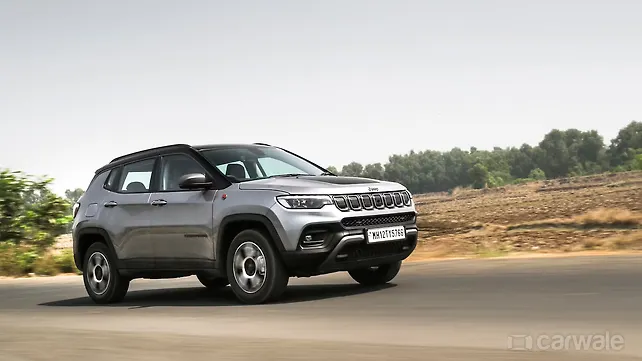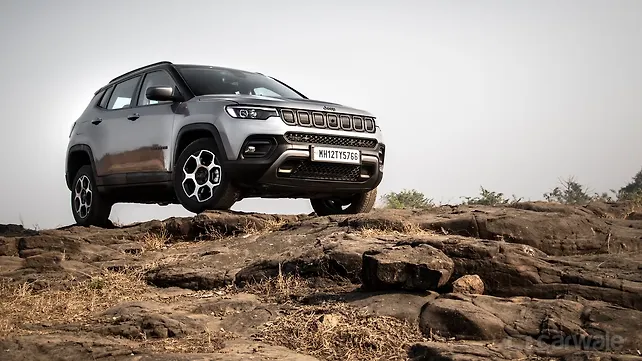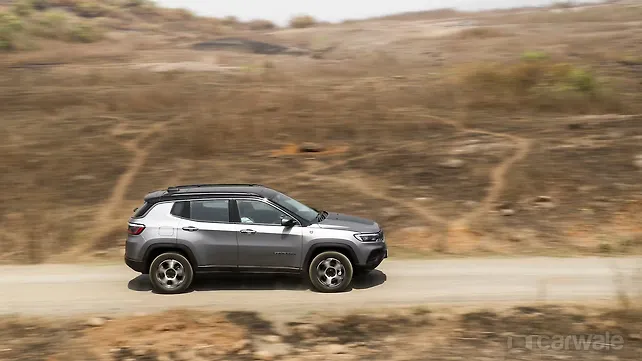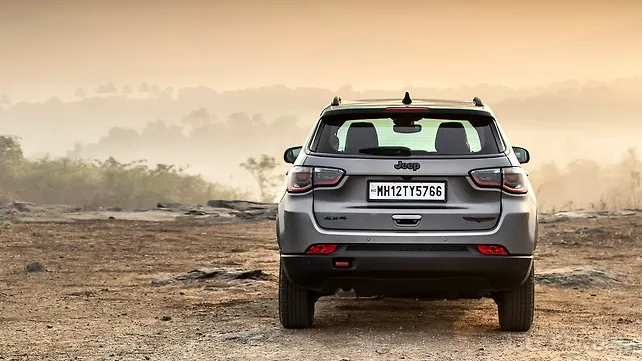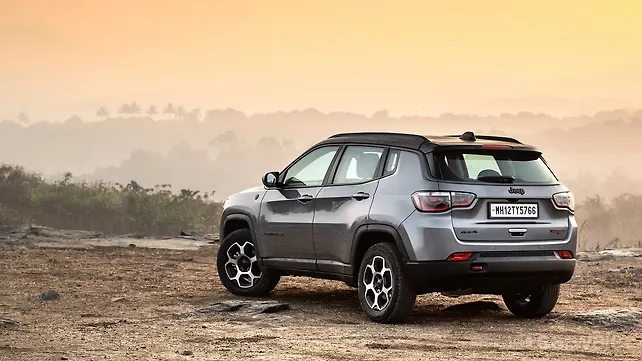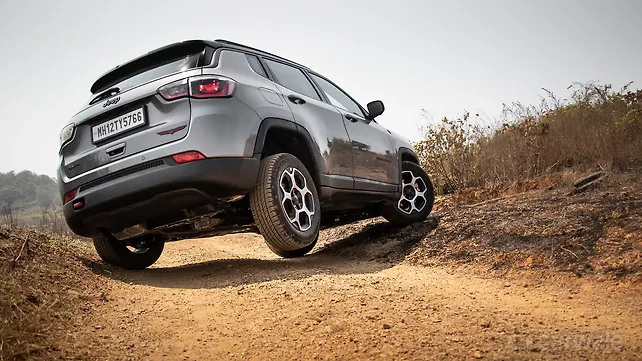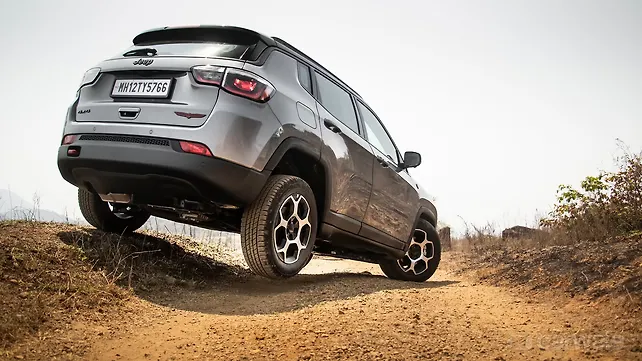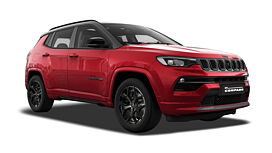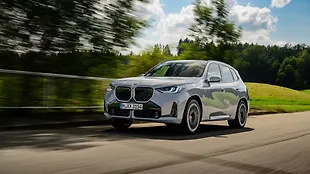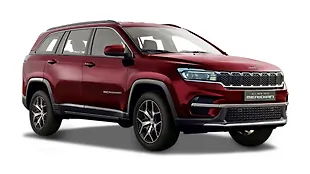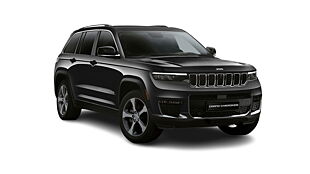Why would I buy it?
- Off-road prowess
- Range-topping version gets many features
- Looks and feels premium, inside and out
Why would I avoid it?
- Would be quite an expensive package
- Sparse sales and aftersales network
- Limited changes over the standard version
Verdict
Getting the Trail Rated badge for any Jeep SUV feels like being verified on social media. It might only be a blue tick next to your name, but flaunts your celebrity status amongst your peers. Similarly, the Compass 4x4 is already a capable SUV that can take you around everywhere, even back where the road had long ceased to exist. But with the Trailhawk version, you get upgrades – both visual and mechanical – that let you and the world around know that you are no ordinary chevalier.
Engine and Performance
8 / 10

Making use of the familiar 2.0-litre turbodiesel engine, the Compass Trailhawk is paired to a nine-speed automatic transmission. Special to the Trailhawk version is the new ‘Rock’ mode in the Select Terrain off-road hardware along with a low ratio mode for the torque converter gearbox. According to Jeep, the Trail Rated badge is only earned by their 4x4 offerings that have passed a series of five gruelling tests. So apart from the reworked bumpers and underbody protection raised ground clearance for better off-road angles, there’re also all-terrain tyres for additional traction in trickier situations. That said, the power output is the same as standard – 170bhp and 350Nm.

On the road, there’s barely any noticeable difference compared to the standard Compass diesel-automatic we drove early last year. There’s a good amount of torque supply right from the word Go and with lots of cogs to play around with, the transmission shifts up quickly and seamlessly. While at it, the drivability too, feels smooth and easy. But this does have a snag – when you really want to get going and the gearbox needs to shift down a few gears before giving you any momentum. Give it some shove and there’s a decent amount of pull from the motor. The oil burner does sound a bit gruff. Thankfully the cabin has enough insulation to keep all that out. For highway runs – one of the few occasions when you can find the ninth gear labouring – the motor is smooth sailing and comfortable to cruise at triple-digit speed all day.

But with the Trailhawk badge shouting out so blatantly, it would be criminal not to take the Compass off the track and into the wilderness. And you can do that with a simple touch of a button. The Select Terrain off-road drive modes in the standard compass are already a lot competent. Here, you get extra assuredness when venturing into the unknown knowing that there’s enough electronic hardware to get through an obstacle with as little skills because the car takes care of the rest. And this intelligent hardware will also get you unstuck without much fuss (unless it’s a really dreadful terrain). Perhaps we can detail out the off-roading credentials of the Compass Trailhawk some other day – CarWale Off-Road day for instance.
Ride and Handling
7.5 / 10

We have always appreciated the ride quality of the Compass and despite the raised ground clearance, not much has changed. Over the jagged and rough surface, there is some suspension noise that’s heard more than felt. Despite being set on a firmer side, the ride remains flat over irregularities and settles nicely over undulations. At slow city speeds, the Trailhawk manages to smoothen out most of the bad patches easily and swallows small speed breakers and rumblers without any fuss. Even when the speed increases, the ride remains flat and the vertical movements are well under control.

Around corners, there is some amount of body movement, but even that is well managed and it doesn’t roll as much as its rivals. Thus this induces confidence to push the Compass Trailhawk harder, which is further helped with responsive and predictable steering response. The steering wheel is light and comfortable for city speeds, and remains like that even when the speed increases. The Compass then, despite the Trailhawk treatment, is an involving SUV to drive, whether there’s paved road beneath the tyres or rocks, ruts, sand, slush, gravel, or more.

Interior Space and Quality
7 / 10

With the comprehensive update last year, the Compass cabin has undergone a huge transition. In this Trailhawk version, there’re barely any changes over the standard version. You do get the red cross-stitch on the upholstery along with ‘Trailhawk’ lettering on the backrest. And that’s about all the noticeable changes inside this off-road-focused Compass over its standard counterpart. This new cabin is modern and loaded with all the features that you’d expect from a premium SUV at this price point.

It’s got a snug cabin not helped by an all-black interior and upholstery. On the upside, the built quality is solid and doesn’t feel tacky or overdone. The Compass appears to be ready for the test of time. Moreover, the cabin is also great in terms of ergonomics and practicality. But the snug feel might make the cabin look less spacious than it actually is. Visibility all around doesn’t give a reason to complain and there’s a good amount of space with front seats getting electric adjustments as well. Add to it large and supportive seats (which are also cooled now) and you can spend long hours inside the cabin without an issue.

Seats at the back are best suited for two though. And for the two passengers, there’s ample leg and back support and the space is decent as well if not cavernous. Speaking of cavernous, the boot space of 438 litres is fairly usable owing to a flat bay and fewer intrusions.

Features and Safety
8 / 10

This being a top-of-the-line version of the Compass, the Trailhawk has some serious equipment list to justify its price tag. This list of creature comfort includes electric front seats with memory for driver and lumbar adjustment, cooled front seats, two-zone climate control, auto lamps and wipers, cruise control, large panoramic sunroof, and Alpine sound system. We like the large floating touchscreen with the latest iteration of the UConnect user interface in the new Compass.

However, this interface is a lot busy and has too much happening on the screen. More importantly, this being a Trailhawk and not a run-of-the-mill version, we expected a dedicated off-road section on this touchscreen giving out information like lean angles, tyre position, power consumption, and more. Even the 360-degree camera could have better visibility all around keeping the off-road requirements in mind.
Conclusion

Now we know the standard Compass 4x4 is quite capable by a huge margin when it comes to off-roading credentials. So what does the Trailhawk package brings to the table that you should be compelled to spend the extra money for it? For the starter, it is Trail Rated which means a huge amount of work has gone into it to make it capable enough to take you places where the soft-roader SUVs only dream to thread with a certain level of assurance.

When launched, the new Jeep Compass Trailhawk will likely cost close to Rs 38 lakh OTR. At this price, the direct rivals don't even come close, but the alternatives that are as capable as it includes the like of Toyota Fortuner or Skoda Kodiaq. So the Trailhawk takes the Compass a segment above its weight class. But it’s an uncompromised package too, snd you don’t miss out on any creature comfort when driving down as crows fly. Lastly, it’s a style statement nonetheless. After all, you are more likely to follow and pay heed to a social media account with a blue tick on it, right?

Pictures by Kaustubh Gandhi

